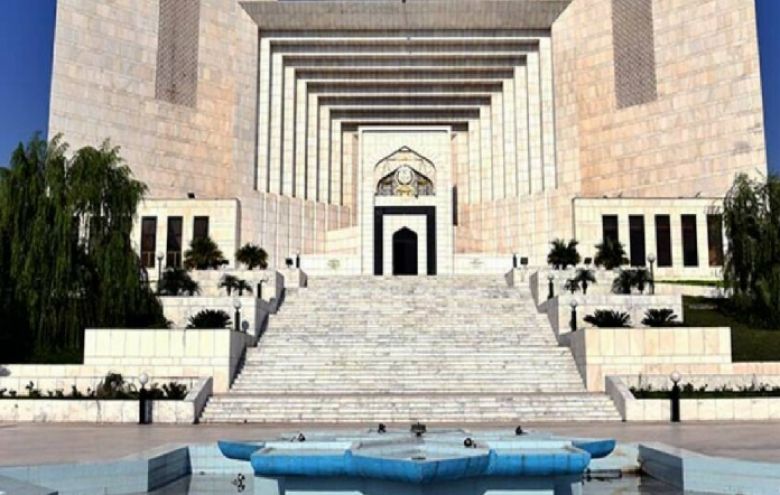Court also refuses to form bench comprising seven senior-most judges, adjourns hearing till May 8.
The eight-member bench, headed by Chief Justice of Pakistan (CJP) Umar Ata Bandial, comprising Justice Ijazul Ahsan, Justice Muneeb Akhtar, Justice Mazahir Naqvi, Justice Muhammad Ali Mazhar, Justice Ayesha Malik, Justice Hassan Azhar Rizvi, and Justice Shahid Waheed hearing pleas.
Meanwhile, Prime Minister Shehbaz Sharif called on Attorney General Pakistan (AGP) Mansoor Usman Awan, and the legal team before the hearing to discuss legal affairs.
The bill
The Supreme Court (Practice and Procedure) bill 2023, aimed at limiting the powers of the Chief Justice of Pakistan (CJP) to take suo motu notice, has faced obstacles in its journey to becoming law.
While initially passed by both houses of parliament, the bill was sent back by the president for being beyond parliament’s competence. Later, it was adopted by a joint session of parliament, albeit with some amendments.
However, a recent ruling by an eight-member apex court bench has put the law’s implementation on hold, stating that it shall not take effect in any manner. The ruling came during a hearing of three petitions challenging the bill. It remains to be seen whether the bill will eventually become law or not.
The petitions
The three petitions were filed under Article 184(3) of the Constitution by Advocate Muhammad Shafay Munir, Raja Amer Khan, Chaudhry Ghulam Hussain and others.
The petitioners argue that the bill is an act tainted with mala fide and urge the court to strike it down after declaring it to be without lawful authority and of no legal effect.
The federal government, law secretaries, as well as principal secretaries to the premier and president have been named as respondents in the case. The petitioners have requested the court to suspend the bill during the pendency of the petition, with a directive for President Alvi not to assent to the bill so that it could not become an act of parliament.
According to the petitions, the federal government cannot frame any law that seeks to interfere or regulate the functioning of the apex court or the powers exercised by it or its judges, including the Chief Justice of Pakistan (CJP), under the Constitution. The petitions contend that the impugned bill is ultra vires and an unconstitutional measure, in sheer violation of the constitutional mandate.
The petitions emphasize that the independence of the judiciary and of each of the judges, including the CJP, is declared as an aim enunciated in the preamble to the Constitution and is a substantive part of the Constitution. It is argued that the SC, led by the CJP with its judges, must be independent of all executive or legislative transgressions to perform their constitutional obligations in providing justice to the people of Pakistan.
The petitions further argue that it is unimaginable that the office of CJP, with respect to constitutional powers, could be allowed to be regulated by the parliament. The independence of the judicial organ of the state, the judges, and the CJP must not be compromised, as provided in the Constitution.
Overall, the petitions seek to protect the independence and functioning of the judiciary in Pakistan, arguing that any attempt to regulate or interfere with its powers and functions is a violation of the Constitution and the fundamental principles of justice.







